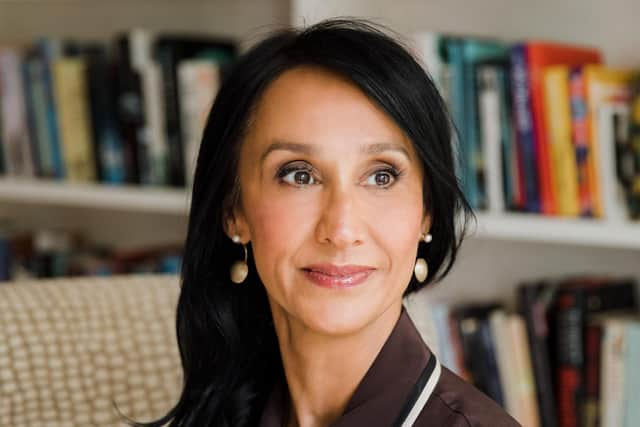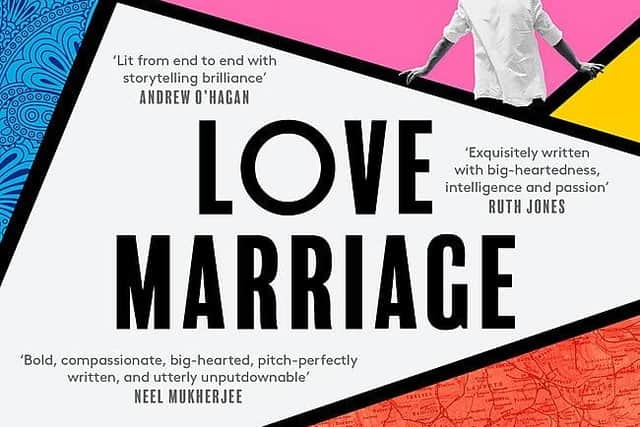Book review: Love Marriage, by Monica Ali


Love and marriage are two of the perennial subjects for novels, not surprisingly. If Jane Austen left her heroine and hero at the church door she also offered pictures of marriage which might serve as a warning, and I have wondered if her most engaging heroine, Emma, would long have endured Mr Knightly. For things shift within a marriage; this is one of the matters Monica Ali explores in this intelligent and agreeably old-fashioned novel.
Yasmin is a young doctor. Her parents, Bangladeshis, long established in London, are Shaokat, himself a doctor, happily anglicised, and Anisah, who at first seems comfortably confined to the roles of wife, mother and home-maker; she is a great cook. Yasmin’s brother Arif is discontented, flirting with Islamism, uncertain of what he can make of his life. It’s an interesting family, and the balance within it will shift; this is one of the subjects of the novel.
Advertisement
Hide AdYasmin is engaged to a fellow doctor, Joe, apparently an ideal husband-to-be: charming, intelligent, kindly. But Joe has problems, revealed in long sessions with his psychiatrist in what are perhaps the least satisfying chapters in the novel. Then there is the question of his mother, Harriet, a rich Feminist author and activist, a celebrity given to speaking provocatively on radio and television. How can the quiet Muslim Anisah relate to this flamboyant and essentially comic character? Yasmin, understandably, views a getting to know each other dinner at Harriet’s with some anxiety. Isn’t it all going to be very embarrassing?.


The novel is well rooted in the everyday, chapters recounting Yasmin’s work in the geriatric ward of the hospital being especially good. Inevitably one theme will be seen as a clash of cultures, and indeed this is the case, but this is done with more understanding, intelligence, humour and sympathy than is usual. Ali’s characters almost all want to behave well. Harriet, in certain respects a richly comic figure, is no exception. She is often absurd, but Ali treats her with respect.
There are secrets in families and recognizing this leads to an unravelling of the past, which changes Yasmin’s understanding of the circumstances of her parents’ marriage and therefore of their characters. Indeed the father, Shaokat, proud of his emergence from poverty to be a capable and respected GP in London, apparently so much better integrated in a different culture than his wife, is perhaps the most interesting and compelling character in the novel, forced by changing circumstances to recognize that the picture he has presented is not altogether honest, therefore misleading.
But, in truth, all the characters are convincing, even though one may think that the exploration and elucidation of Joe’s nature – more complicated than at first apparent – might have been better done than through his sessions with the psychiatrist. These episodes read like a somewhat static, flat exploration whereas almost everything we learn of the other characters is presented dramatically. No doubt Ali couldn’t find a better way of letting Joe reveal himself.
She is however, for the most part, a natural and very engaging storyteller who recognizes the importance of presenting scenes and changes of mood and judgement dramatically. The word “middlebrow” is perhaps out-of-date, and was in any case far too often used to belittle a novel and its author. Yet a great deal of the best fiction is fairly described as “middlebrow”, meaning a novel which deals with ordinary life as it is experienced by most of us, and this novel is a very good and welcome example of that. It doesn’t set out to be clever or bizarre; it tells a story about people in whose life there is little that is extravagant or remarkable – even though there may be dark passages, even horrors, in the past. Its characters are all people who try to live decent and admirable lives, who encounter difficulties and for the most part face up to them. It tells of ordinary people trying to do right by themselves and others, and it does this very well and engagingly.
Love Marriage, by Monica Ali, Virago, 499pp, £18.99
A message from the Editor:
Thank you for reading this article. We're more reliant on your support than ever as the shift in consumer habits brought about by coronavirus impacts our advertisers.
If you haven't already, please consider supporting our trusted, fact-checked journalism by taking out a digital subscription at https://www.scotsman.com/subscriptions